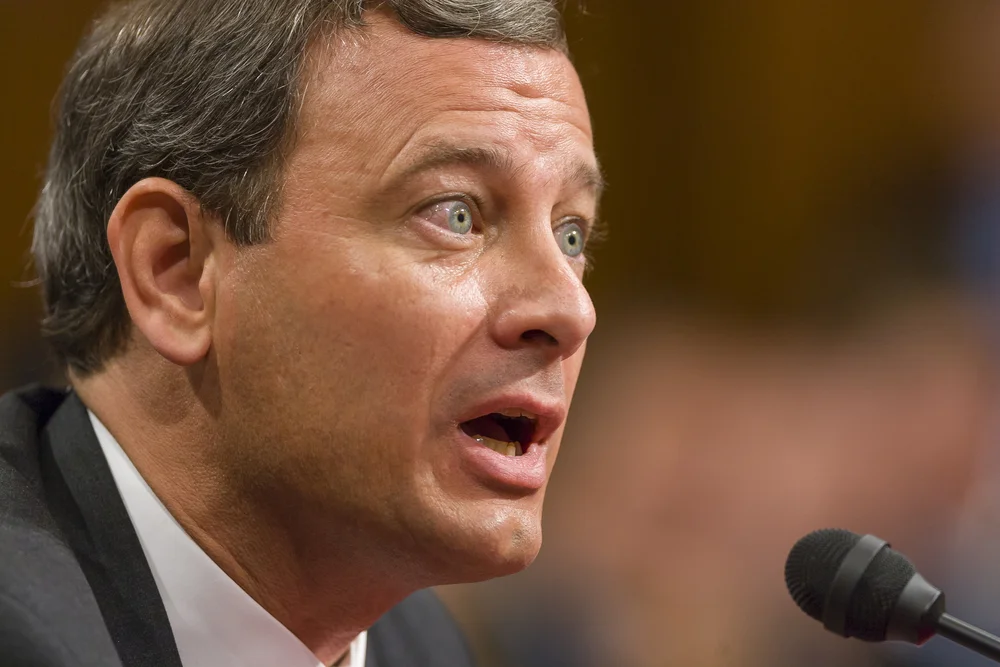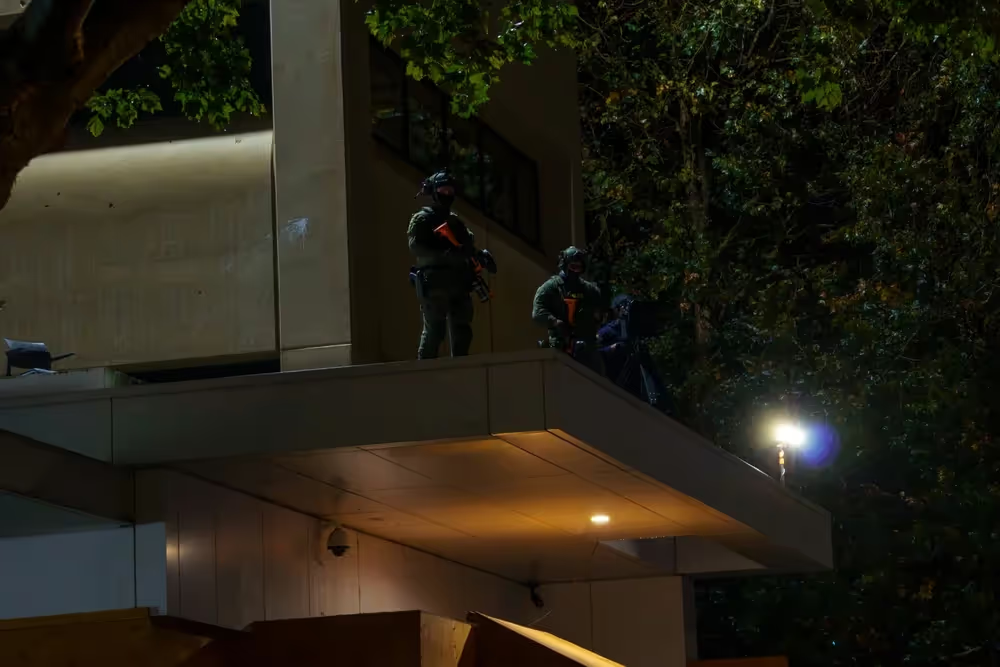
Does Federal Law Extend to Portlandia?
The President can use the military to protect federal facilities and federal personnel carrying out legitimate federal functions.
Supporting the disorder outside federal buildings, Chicago Mayor Brandon Johnson claims that “the right wing in this country wants a rematch of the Civil War.” He has one thing right. But, in a result that would have shocked his state’s most favored son, Abraham Lincoln, the mayor of Chicago and the governor of Illinois, J.B. Pritzker, are relying upon the discredited theories of Confederates and segregationists to unconstitutionally resist federal authority. President Trump has no choice but to deploy military units to protect federal agents and to appeal to the Supreme Court to vindicate the supremacy of the national government over immigration.
Portland and Chicago have seen violent protests outside of federal buildings, attacks on ICE and DHS agents, and organized efforts to block the enforcement of immigration law. President Trump has ordered the deployment of National Guard units to protect federal officers and facilities. Although local officials have raised cries of a federal “occupation” and “dictatorship,” Article II of the Constitution places on the President the duty to “take care that the laws are faithfully executed.” Illinois leaders cannot seriously argue that this authority somehow excludes the removal of aliens here in violation of the immigration laws.
Nevertheless, blue state leaders have decided to make a stand — against the President, not the violent rioters in the streets. In a bid to block deployment of the National Guard, Pritzker and Governor Tina Kotek of Oregon have sued on the grounds that the White House needs their permission to deploy the National Guard. Mayor Johnson has created “ICE Free Zones” that bar federal officers from public property. San Francisco district attorney Brooke Jenkins threatens to prosecute federal officers engaged in immigration operations, or national guard units that arrive to protect them, for “excessive force” or breaking unspecified local laws.
Portland and Chicago have met with mixed success in the courts. On Thursday of last week, the federal court of appeals for the Seventh Circuit upheld a lower court order barring the Trump administration from deploying the National Guard to Illinois. It found that the President’s attempts to quell violent assaults against federal immigration agents and property exceeded his constitutional authority. Earlier this month, a federal district judge in Oregon likewise sided with state and local officials to temporarily halt the White House from sending 200 Oregon National Guard troops to Portland. In both cases, the courts found that the harassment of ICE operations did not rise to the level of a “rebellion” nor that federal law could not be enforced through ordinary means. However, on Monday, the U.S. Court of Appeals for the Ninth Circuit correctly overturned the Portland trial judge. Following its earlier decision upholding the deployment of troops to Los Angeles, the Court held that attacks on ICE facilities that began in the summer and have spread to other cities justified the use of the military in Portland. The Supreme Court must grant review of these cases, which have created an intolerable conflict between the courts in the Midwest and those on the West Coast.
The decisions of the Chicago courts fail to properly interpret the broad discretion delegated by Congress to the President. It should be made clear that Trump has not relied upon the executive’s constitutional power over the U.S. Armed Forces. Instead, as the Supreme Court made clear in Perpich v. Department of Defense (1990), Article I, Section 8 of the Constitution vests in Congress the power “to provide for calling for the Militia to execute the Laws of the Union, suppress Insurrections, and repel Invasion.” It also provides that Congress shall “provide for organizing, arming, and disciplining the Militia,” which evolved into today’s National Guard, “and for governing” those units called into federal service. A unanimous Supreme Court held that Congress enjoys plenary authority over the National Guard, could set the conditions for calling them into national service, and that could merge them into the regular army once “federalized.”
Under this authority, Congress has established several grounds for the President to deploy troops domestically. To be sure, Congress enacted a broad ban on the use of the military within the territorial United States at the end of Reconstruction (which required the military to occupy the South after the Civil War). In the Posse Comitatus Act, Congress prohibited the use of the military “to execute the laws,” except when “expressly authorized” by the Constitution or an Act of Congress. But Congress has enacted two laws – one in Title 10 of the U.S. Code that regulates the armed forces, and the second, the Insurrection Act – that fall within these exceptions to the Act.
In Title 10, Congress delegated the President the authority to call out the National Guard in cases of invasion, rebellion, or resistance to federal law. Portland and Chicago naturally claim that the law only applies in cases of “invasion” or “rebellion.” They imply that President Trump has exaggerated the unrest in their cities to justify deploying federal forces and to expand his own power. Johnson, for example, insists that “this is not about safety” or “about immigration,” but about “fermenting chaos and terrorizing the people of Chicago and cities across America.” Pritzker claims that “there is no threat to public safety that necessitates military intervention in Portland,” and “what we’re seeing is not about public safety, it’s about the President flexing political muscle under the guise of law and order, chasing a media hit at the expense of our community.” Pritzker has also warned that the country is becoming “Nazi Germany” because ICE is “grabbing people off the street… and disappearing them.”
But these Democrats conveniently ignore the third ground to call out the National Guard. Congress allows the President to federalize the National Guard when he “is unable with the regular forces to execute the laws of the United States.” As the Ninth Circuit decision found, protestors in Portland have been launching riots to stop ICE and DHS agents from carrying out their duties since early June. Protesters have laid siege to the ICE field office in south Portland, violently breached the facility by using a stop sign as a battering ram, hurled explosives and projectiles, and burned American flags. They have violently assaulted, attacked, injured, and doxed officers, and berated hundreds of Portland residents who live just across the street from the ICE facility. Television scenes across both cities show obvious efforts to stop the federal government from apprehending and removing illegal aliens under its immigration laws.
To be sure, the primary responsibility for criminal law enforcement lies with state and local officials. Controlling rioters, restoring law and order to the city streets, and prosecuting offenders fall within the “police powers” exercised by the states and recognized by the Constitution’s Tenth Amendment. While the federal government plays a significant role in criminal justice, the Supreme Court has emphasized that federal authority should primarily focus on interstate crimes. In United States v. Lopez (1995), the Supreme Court rejected the idea of “a general federal police power”. It noted that “in areas such as criminal law enforcement … States historically have been sovereign.”
But this is not a case of federal troops displacing local police or assuming general law-enforcement powers. Chicago and Portland have not yet descended into the total breakdown of order seen in Los Angeles during the 1992 Rodney King riots. In 2025, the administration is not replacing the states’ responsibility to maintain basic public safety. Instead, Trump is enforcing federal immigration law; in Arizona v. United States (2012), the Supreme Court held that only federal officials may enforce it.
In performing this exclusive function, the federal government can deploy troops to protect its law enforcement officers. In 1971, William Rehnquist, then assistant attorney general for the Office of Legal Counsel at the Department of Justice, declared that the President could use troops in response to attacks on federal employees and agencies. DOJ, he wrote, had long taken the position that the Posse Comitatus Act “does not impair the President’s inherent authority to use troops for the protection of federal property and federal functions.” This conclusion, he argued, is “supported by the historic and judicial recognition of the President’s inherent powers to use troops to protect federal property and functions as a necessary adjunct of his constitutional duties under Article II, Section 3 of the Constitution.”
Future-Chief Justice Rehnquist did not conjure this presidential power out of thin air. The Supreme Court had already long recognized the authority. In In re Neagle (1890), the Supreme Court addressed the use of force by a federal marshal assigned to protect Supreme Court Justice Stephen Field. Even though no law authorized federal officers to use force as bodyguards, the Court held:
We hold it to be an incontrovertible principle that the government of the United States may, by means of physical force, exercised through its official agents, execute on every foot of American soil the powers and functions that belong to it. This necessarily involves the power to command obedience to its laws, and hence the power to keep the peace.
Because of supremacy over the matters entrusted to it by the Constitution, the Court reasoned, the President had the power to protect the security of the federal officials who carried it out. “We cannot doubt the power of the president to take measures for the protection of a judge of one of the courts of the United States who, while in the discharge of the duties of his office, is threatened with a personal attack which may probably result in his death,” Justice Miller wrote for the Court. Miller’s logic extends beyond the judiciary to encompass the entire federal government.
In the face of late nineteenth-century labor strife, the Supreme Court expanded Neagle to include the protection of federal personnel and their functions. In 1894, union organizers and workers sought to block all trains using Pullman railcars, halting all trains nationwide. President Grover Cleveland ordered U.S. troops to prevent the obstruction of trains carrying the mail; the Army broke the strike, and Eugene Debs was arrested and convicted. In In re Debs (1895), the Court refused to grant Debs a writ of habeas corpus. It declared:
The entire strength of the nation may be used to enforce in any part of the land the full and free exercise of all national powers and the security of all rights intrusted by the constitution to its care. The strong arm of the national government may be put forth to brush away all obstructions to the freedom of interstate commerce or the transportation of the mails.
The federal government could use even the military, if necessary. “If the emergency arises, the army of the nation, and all its militia, are at the service of the nation, to compel obedience to its laws,” Justice Brewer concluded. Under Neagle and Debs, the President can use the military to protect federal facilities and federal personnel carrying out legitimate federal functions.
Presidents also have the authority to use federal troops to enforce the law in the face of organized resistance. Going back to the 1794 Whiskey Rebellion, chief executives since George Washington have deployed troops to break up groups that resist federal law enforcement. At the outbreak of the Civil War, President Lincoln carefully restricted the use of federal forces to federal installations and the execution of federal law. This presidential authority comes directly from the Constitution. The President has the responsibility to “take Care that the Laws be faithfully executed” and, as Chief Executive, the President protects the integrity of the government itself. As the Court has said that immigration is a purely federal function, there can be little doubt that ICE and DHS agents are engaged in valid law enforcement operations. If Trump’s orders only protect those agents, they fall within his constitutional authority to protect the federal government.
Third, President Trump could expand the military’s mission beyond protecting the federal government to include law enforcement when organized resistance obstructs the execution of federal law. Congress has amplified presidential power by granting the executive the authority to intervene, even without governors' agreement, under the Insurrection Act of 1807. For the Act to apply, disorder must rise to the level of an “insurrection” that “opposes or obstructs the execution of the laws of the United States or impedes the course of justice under those laws.” That threshold was crossed when President Dwight Eisenhower sent the armed forces to Little Rock to overcome Arkansas Governor Orville Faubus's resistance to desegregation orders. President George H.W. Bush also invoked the law, at Governor Pete Wilson’s request, to send troops to restore order in Los Angeles during the 1992 Rodney King riots. These precedents would justify invoking the Insurrection Act to end rioting in Chicago and Portland, should disorder spread beyond the attacks on ICE and DHS officers and facilities to a broader collapse of law and order.
Under Supreme Court case law, the courts should defer to the President on whether the circumstances justified triggering the Insurrection Act. In the early decades of the Founding, the Supreme Court made that principle clear in Martin v. Mott (1827), which held that the President—not the courts or the states — determines when an emergency warrants calling out the militia. Justice Story wrote for the Court that “the authority to decide whether the exigency has arisen belongs exclusively to the President,” and that his decision “is conclusive upon all other persons.” Two decades later, in Luther v. Borden (1849), the Court reaffirmed that determining whether a domestic crisis warrants military intervention is a political, not judicial, question—and recognized that under the Act of February 28, 1795, “the power of deciding whether the exigency had arisen upon which the government of the United States is bound to interfere is given to the President.” This deference to the executive reflects the Constitution's appropriate institutional roles for the executive and the judiciary. The President ensures that the laws are faithfully executed, while courts cannot judge whether opposition to federal policy has coalesced into organized resistance to federal law enforcement. Judges should leave opponents to the mechanisms for opposition established by the Framers: Congress’s authority over funding, legislation, and oversight; the national political system, including political parties and elections; and ultimately, impeachment.
Yet the lower courts have begun to disregard this settled understanding. The Seventh Circuit distinguished Martin because it involved the War of 1812, not domestic disturbances. And while the U.S. District Court in Oregon acknowledged that the President is entitled to a great level of deference, it reasoned that “a great level of deference is not equivalent to ignoring the facts on the ground” and that “the President’s determination was simply untethered to the facts.”
Both courts misread Justice Story’s opinion in Martin, which did not rest on wartime exigency but constitutional structure. He recognized that questions of domestic security and force are inherently executive and must be decided by the branch accountable to the people. If judges can second-guess whether protests are “violent enough” or whether the President has “enough regular forces” to enforce the law, they will usurp the very judgment the Framers vested in the President as Commander-in-Chief and that Congress recognized in the Insurrection Act. The Supreme Court should intervene to restore proper judicial deference. Governors Kotek and Pritzker are asking courts to overthrow two centuries of constitutional understanding and the judiciary’s traditional respect for the responsibilities of the elected branches of government.
Trump critics in Portland and Chicago cannot claim that Presidents lack the authority to call out the troops to protect the national government and enforce federal law. Presidents have used these same authorities to desegregate southern schools in the 1950s after Brown v. Board of Education and to protect civil rights protesters in the 1960s. Those who cheer those interventions cannot now deny the same constitutional authority when it is exercised by a president they oppose. If critics want the federal government to have the power to enforce civil rights laws against resistant states, they also must concede to President Trump the authority to enforce immigration laws against rioters in the cities of Portland and Chicago. Pritzker and Kotek are making the same mistake as these earlier opponents to federal authority. They believe political opposition to the Trump administration justifies defiance of valid federal law. But historical precedent and constitutional structure say otherwise. If Illinois and Oregon persist, they, too, may find that the courts, the Constitution, and the people will again side with the President.
John Yoo is a senior research fellow at the Civitas Institute, and a distinguished visiting professor at the School of Civic Leadership at the University of Texas at Austin. He is also the Emanuel Heller Professor of Law at the University of California at Berkeley where he supervises the Public Law and Policy Program among other programs at Berkeley Law.
Constitutionalism

Amicus Brief: Hon. William P. Barr and Hon. Michael B. Mukasey in Support of Petitioners
Former AGs Barr and Mukasey Cite Civitas in a SCOTUS Brief

Rational Judicial Review: Constitutions as Power-sharing Agreements, Secession, and the Problem of Dred Scott
Judicial review and originalism serve as valuable commitment mechanisms to enforce future compliance with a political bargain.

Supreme Court showdown exposes shaky case against birthright citizenship
Supreme Court will hear challenges to Trump's order ending birthright citizenship, testing the 14th Amendment's guarantee for babies born in America.
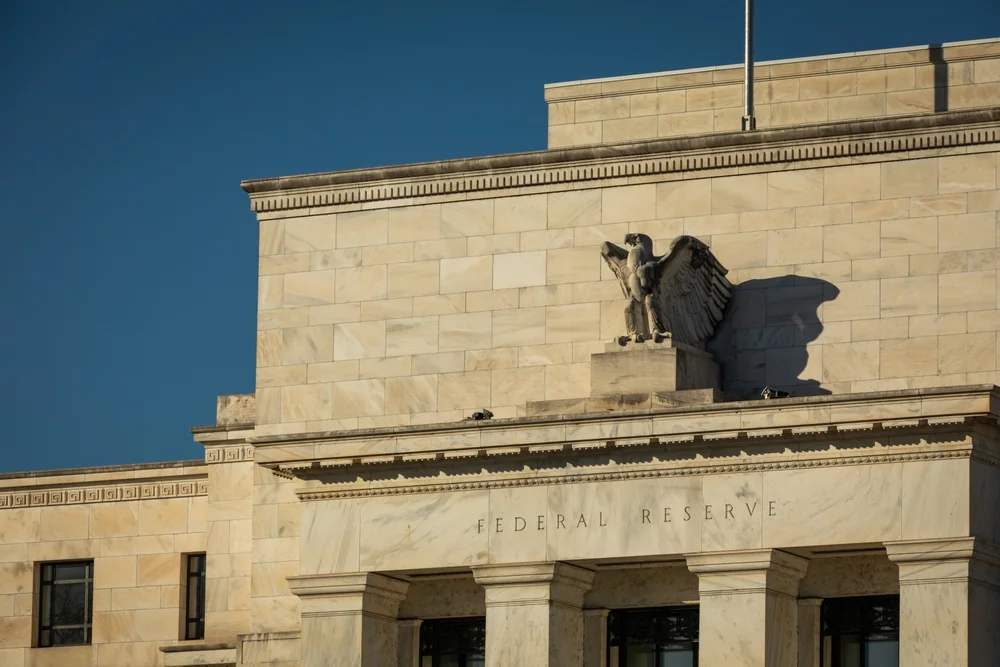
Why Is the Federal Reserve Special — and Just How Special Is It?
How does the Fed fit into the Court's reform of the administrative state?

Kneecapping Powell, Undermining the Rule of Law
Donald Trump and conservatives know the perils of lawfare all too well. Why subject Jerome Powell to the same thing?


.avif)







.avif)
.avif)
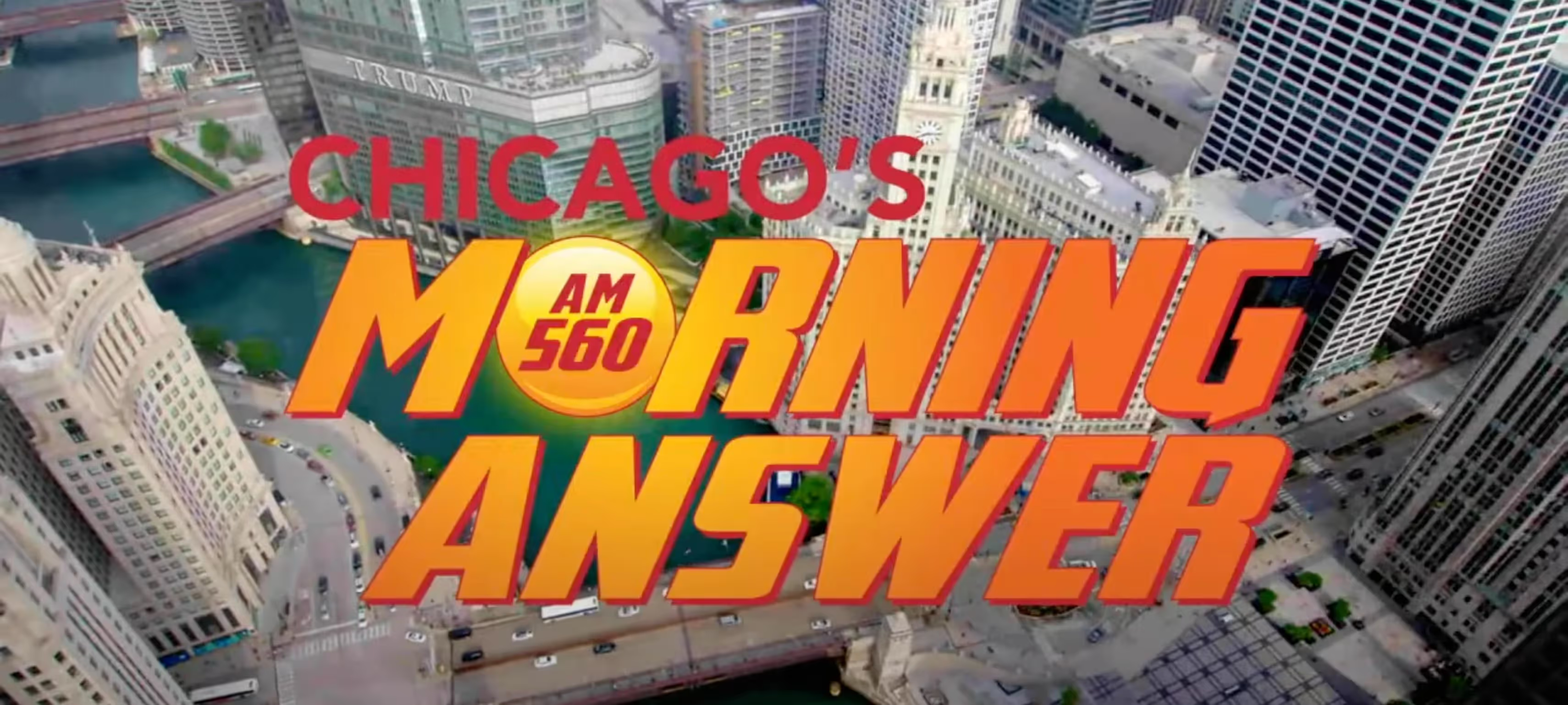
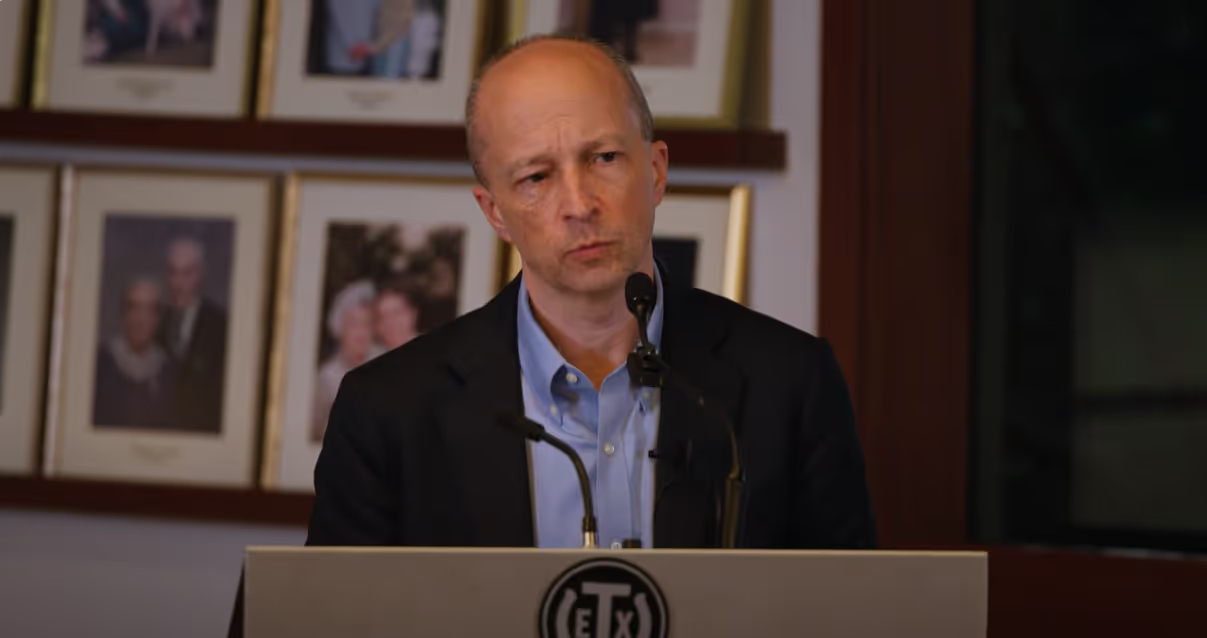
%20(1).webp)
